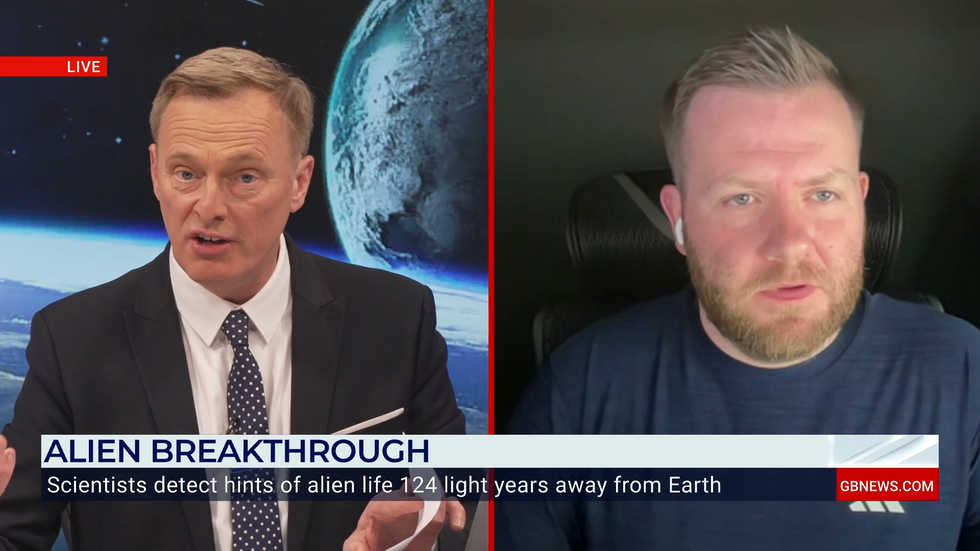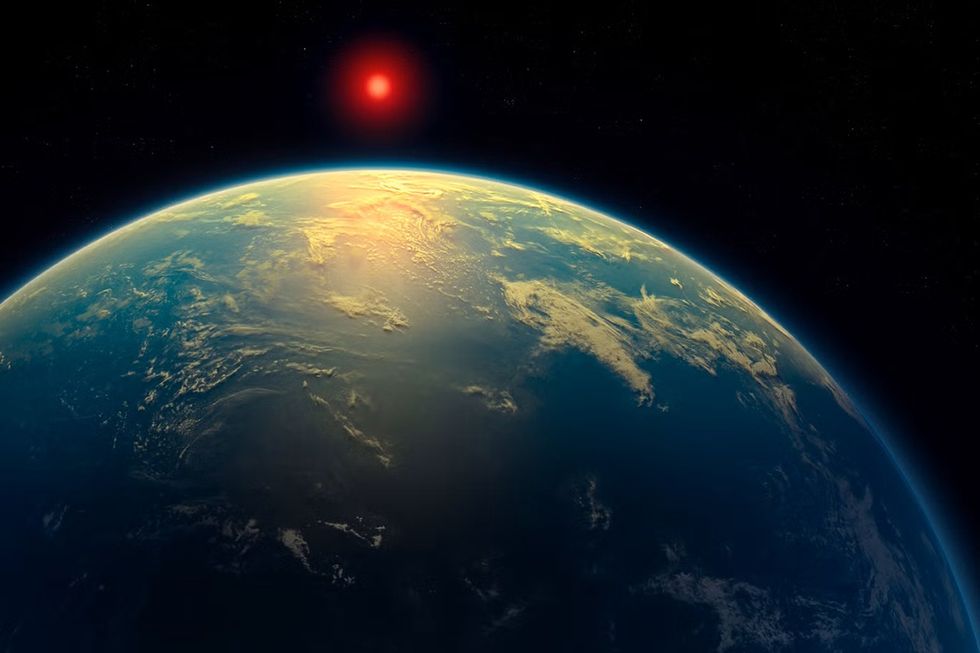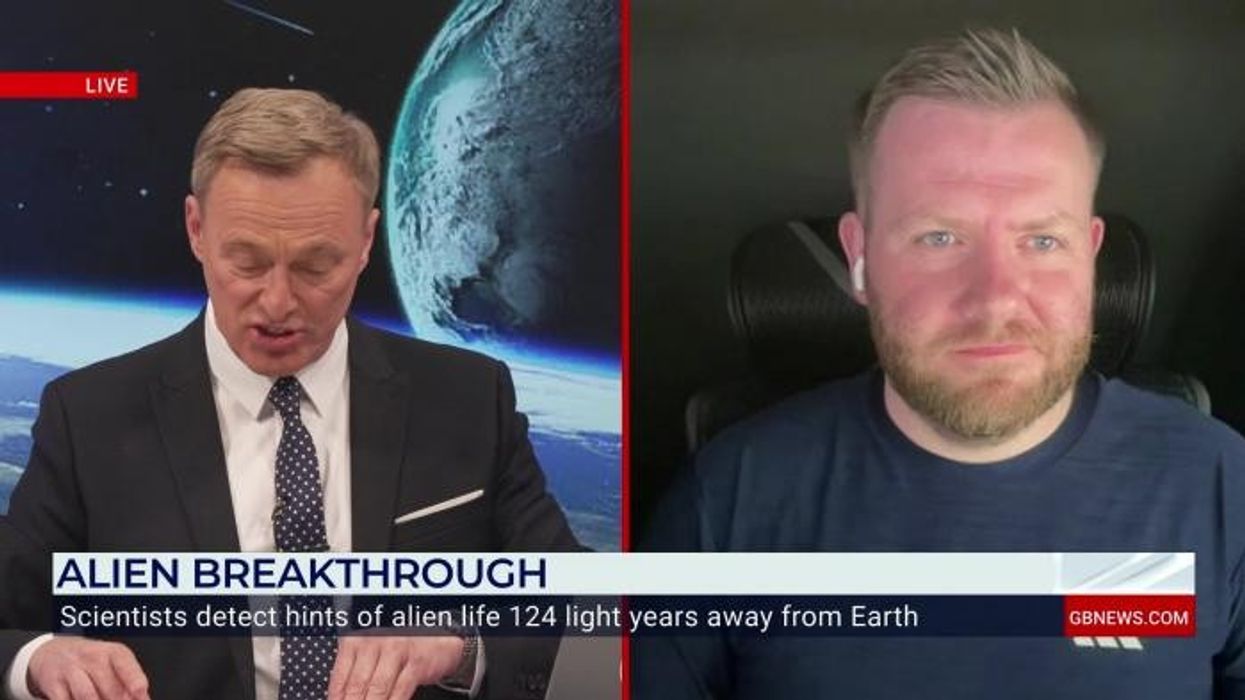Fears alien research could be ‘stopped in its tracks’ after major discovery

Scientists have detected dimethyl sulfide in a planet's atmosphere, a molecule that on Earth is typically produced by ocean algae.
Don't Miss
Most Read
Latest
UFO podcast host Andrew McGrillen has warned that the groundbreaking discovery of potential alien life on planet K2-18b could be "stopped in its tracks" due to NASA funding cuts.
Speaking on GB News, McGrillen expressed concern that budget constraints in the United States could halt further investigation into what scientists are calling "the strongest evidence yet" of extraterrestrial life.
The discovery centres on K2-18b, a massive planet orbiting a star approximately 120 light-years from Earth.
Scientists have detected dimethyl sulfide in the planet's atmosphere, a molecule that on Earth is typically produced by ocean algae.

Andrew McGrillen has warned that the groundbreaking discovery of potential alien life could be halted
|GB NEWS
Researchers from the University of Cambridge, using data from the James Webb Space Telescope, suggest this finding could indicate the presence of an ocean potentially teeming with life.
Mcgrillen told GB News: "I think this is how the conversation could really get the public at large invested and involved in the UFO topic, the conversation about extra-terrestrial life, or just what non-human life may look like.
LATEST DEVELOPMENTS
"For me, if we can get confirmation from academics and scientists that we've found some form of life no matter how far away it is it opens up the door to the possibility that there may be other forms of life out there.
"Maybe even ones that have been visiting us. You know, those famous sightings throughout the years crashes like Roswell suddenly gain another layer of credibility with the public.
Martin Daubney said: "Andrew, they're saying this could be phytoplankton or krill, because of the gases that were detected. But that’s how life on Earth began, right? It started small and evolved into where we are now. So the only real limits, potentially, are our imaginations."
He responded: "Well that, and the risk of potential funding cuts at NASA. Right now, in the United States, you may have reported on some of the ongoing issues things like tariffs and broader budget constraints.
"NASA’s budget may be cut in half. So there’s a real possibility that this study, as fascinating as it is, could stop in its tracks due to lack of funding.
"I would hope the public gets behind discoveries like this and encourages governments to keep exploring the search for life elsewhere."
The team of astronomers described their findings as "a revolutionary moment", noting it's "the first time humanity has seen potential biosignatures on a habitable planet".
The research, published in The Astrophysical Journal Letters, suggests K2-18b may have a hydrogen-rich atmosphere and a deep ocean.

Scientists have detected dimethyl sulfide in the planet's atmosphere
|PA
While K2-18b is significantly larger than Earth—more than eight times our mass—it's smaller than Neptune.
Scientists caution against premature conclusions about alien life, with Cambridge researcher Nikku Madhusudhan stating: "It is in no one's interest to claim prematurely that we have detected life".
However, the presence of dimethyl sulfide is significant as on Earth it has only one known source: ocean algae.
The discovery was made possible by the James Webb Space Telescope, which has only been operational since late 2021.











